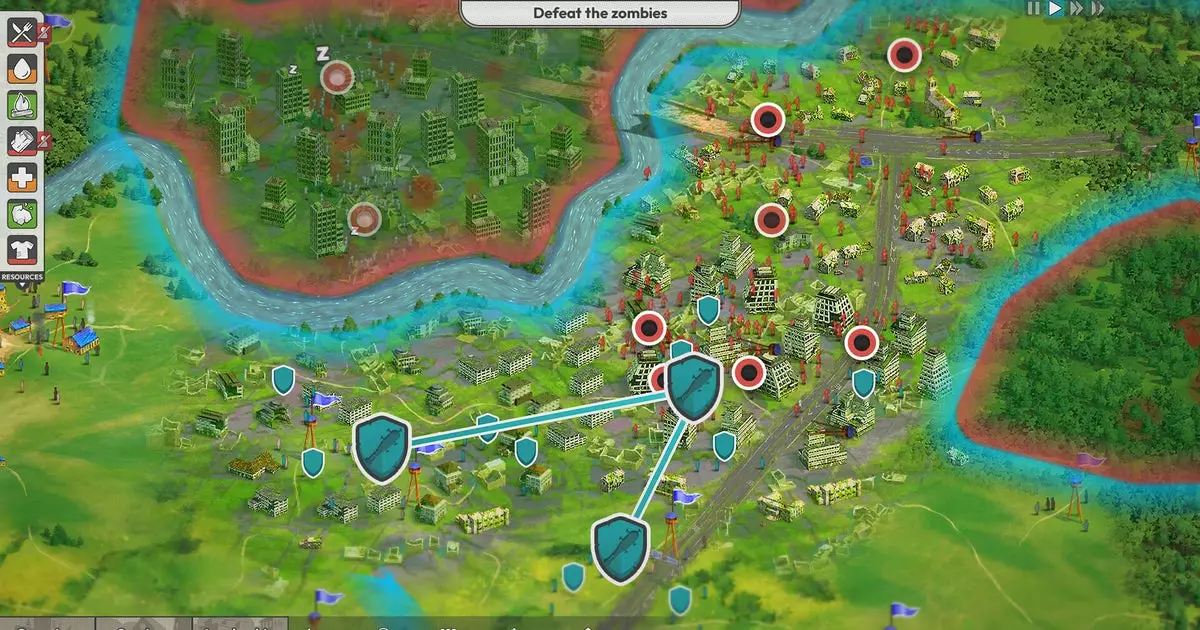The gaming landscape is often a reflection of the world around us, and Ndemic Creations’ latest offering, “After Inc: Revival,” presents a unique commentary on our collective resilience in the face of adversity. Following the success of their mobile strategy sim “Plague Inc,” which tantalizingly engaged players in modeling disease spread, Ndemic steps into new territory with a post-apocalyptic scenario that invites players to rebuild society after a catastrophic event. With a planned early access launch in 2025, “After Inc: Revival” blends the elements of city-building and strategy gameplay against the backdrop of a beautifully rendered, devastated United Kingdom.
When one thinks of a post-apocalyptic setting, images of desolation and despair often come to mind. However, “After Inc: Revival” challenges this notion by vibrant depictions of nature reclaiming its territory amidst the ruins of civilization. By employing cozy aesthetics and rich visual storytelling, Ndemic creates a utopian contrast where one can thrive against the odds. Players will engage in rebuilding communities, designing homes, and resurrecting agricultural practices, all while navigating the complexities of human society. The nostalgia woven into the game feels poignant, serving as both an escape and a reminder of the fragile truths underpinning our reality.
The premise of resurrecting life amidst societal chaos raises the stakes for players, who must now make ethical decisions that echo real-life dilemmas. The game encourages players to ponder the harsh realities of survival versus morality: Should resources be devoted to the more vulnerable, or is it wiser to prioritize self-preservation above all? These decisions directly shape the development of the player’s settlement, a clever mechanic that mirrors the ongoing discussions of societal values in our own world.
The developers have implemented innovative gameplay dynamics, drawing from real-world research on social structures and human behavior. Players are tasked with managing resources while grappling with the implications of their choices. Should children be considered an investment in the future or a liability in a resource-scarce environment? Are pets companions or potential sustenance in desperate circumstances? Such choices are not merely mechanical; they serve to evoke critical thinking and ethical discussions in the minds of players.
Moreover, the simulation of zombie behavior, equipped with “ultra-realistic modeling” based on scientific data, infuses the gameplay with a blend of thrill and strategy. This adds a layer of unpredictability: the zombies are not merely mindless threats but entities that interact with the environment, presenting players with challenges that require thoughtful planning and situational awareness.
One of the more provocative features of “After Inc: Revival” is its exploration of governance systems within the settlement. Players must choose between democratic ideals or authoritarian control, an element that underscores the moral complexity of their leadership roles. This duality holds significant potential for discussions around governance and societal values, especially pertinent in today’s context where democratic principles are often taken for granted. The dystopian setting acts as both a critique and an analysis of leadership, as players navigate the consequences of their decisions in shaping a new society.
The game promises a plethora of leaders—each imbued with distinct abilities—who can influence the course of development within settlements. This diversity enhances the replayability factor, allowing players to explore various leadership styles and societal outcomes. As each decision ripples through the community, players may be forced to confront the consequences of their ideals, prompting in-game discussions that reflect the tumultuous state of government in our current world.
While Ndemic has taken a playful approach in framing their game, especially with humorous remarks about the lack of a real-life zombie apocalypse, it’s crucial to acknowledge the subtleties in its portrayal of societal collapse. The game’s thematic undercurrents suggest a commentary on the COVID-19 pandemic and its implications for a post-crisis reality. It raises a pertinent question: does “After Inc: Revival” provide an avenue for reflection on the challenges we continue to face, or do we risk trivializing real-world suffering with such fantastical elements?
As players immerse themselves in the world of “After Inc: Revival,” they are not just engaging with a game; they are grappling with the complexities of human existence, survival, and the relentless hope for renewal. The intersection of entertainment and reflection elevates this title beyond mere escapism, inviting players to ponder their roles in reconstructing the narratives of communities, whether in-game or in reality.


Leave a Reply